“Dragon’s Dogma is largely a fantastic example of what an RPG should be.”
It has been several years since 2012 and the original release of the role-playing classic that is Dragon’s Dogma. Now the Japanese and Western RPG hybrid has finally made its way onto PC with a fresh graphical overhaul in its complete and final form. For fans who played the game before this will be delighting news, with the game being well reviewed the first time around and a popular choice on console. For those who are new to the game, its combination of RPG game elements reminiscent of The Witcher, The Elder Scrolls, Monster Hunter and Dark Souls amongst others will certainly make it an intriguing choice.
For the purposes of this review, I will largely assume that you, the reader, have not in fact played the original Dragon’s Dogma before. To cover some elements, referencing the original release will be a necessity. Otherwise I will cover the game as if it is an original release.
As previously mentioned, the game bears similarities to numerous other RPG elements from other popular games. The way in which it combines and enhances these elements however is perhaps more important that their general presence. In terms of play style the games menus and combat system feel a lot like Dark Souls or Monster Hunter. The weaknesses and strategy involved in defeating foes is much like the systems in The Witcher, as is the combination of ingredients to medicinal and buff-producing ends. Adventuring, mission structure and speaking to NPC characters meanwhile makes the game feel close to the Elder Scrolls series. All of these ideas brought together is a fantastic experience, but the game adds its own unique ideas into the mix as well, not simply settling for those of others.
One of the clearest and most unique features of Dragon’s Dogma is the Pawn system. This is essentially the way in which you manage your followers and create a formidable squad with which to take on the dangers of the world. One of your Pawn’s can be created by yourself early in the game, whilst the two others who may also follow you can be those created by other players or included in the game. This follower system allows you to control the classes of your squad to best suit your preferred approach. With three starting classes in the game followed by more advanced and refined ones later on, this means that you can go all out with just one combat style, or combine several to make a deadly combination. Pawns also have their own personalities, which effect their approach to different situations throughout play. This can influence whether they will charge head on at enemies, or rush to the aid of injured allies during battle. Getting the right mix of Pawns on-side can therefore make a genuine and critical difference to the game.
As you progress through Dragon’s Dogma your character’s abilities will grow and their class options expand as well. When you start your adventure you can simply choose to be a Mage, the magical support class, a Fighter, the frontline attacker and defender, or a Strider, a class which can act as both a ranged fighter and a high-speed trapper. The Mage and Fighter are pretty standard as RPGs go, but the Strider is certainly a more interesting class. With the ability to climb onto large enemies in order to bring them down for supporting characters to attack, the Strider is an extremely useful part of the team in the early game. Later classes include either advanced or hybrid options, the latter of which allows you to use skills from one multiple fighting styles. The six enhanced classes title’s are rather self-explanatory; the Ranger, Sorcerer, Warrior, Mystic Knight, Magick Archer and Assassin. The game’s class system is another which is unique to Dragon’s Dogma, and it is well developed in the way it progresses as you get deeper into the game.
General gameplay is easy to get the hang of in Dragon’s Dogma. The game is best played with its original controller system over the mouse and keyboard option, which is very complicated even with a helpful HUD to show you which keys do what. The menus are also confusing at first, but once you figure it out you are ready to go with relative ease. The movement, combat and interaction systems all work very well indeed, making the overall experience a flowing and enjoyable one. You are free to move around the world as you wish (within the general laws of physics, of course) and combat is also open to be carried out via any approach you see fit. You can charge in, fight from cover, or run away at any moment. You can also merge one skill directly into another to make combat fluid rather than choppy, which sets it out from other RPG fighting systems. All the while, you can easily command your Pawns to match your tactics, create a distraction or get away from the action and to safety. During interactions, the options available to you are presented in clear and simple menus making it easy to navigate and quick to do what you want. Gameplay as a whole then is exceptionally smooth and very nicely developed.
Despite the simplicity of how you play however, the game is certainly challenging. As with titles such as Skyrim or The Witcher, the moment at which you pick up a quest may not be the best time to complete it, with some quests needing far greater preparation or simply being too difficult for you at that stage in the game. Rather than monsters that grow in difficulty with you, the world is free flowing with some opponents being strong and others being cannon fodder by comparison. The difficulty level certainly isn’t as high as a game like Dark Souls, in that you can save at any time and choose to do something else whilst working towards a later goal. As RPGs go, the difficulty level is near-perfect in relative terms. It is not a walk in the park like some, but not an impossible, repetitive slog like others. Dragon’s Dogma falls on the challenge scale hitting the nail neatly on the head.
On top of solid gameplay systems and mechanics, the game has an unusual but interesting story. This is where the combo of Western and Japanese styles is particularly in your face, with the characters of the game fitting to the former whilst some story elements very much resonate the latter. To give an early-game example, when the dragon appears shortly after the character creation stage, the local guards run and panic much like they would in a Western RPG. When your character heroically runs out to face him however, he literally pierces into your body with his talon, pulling out and eating your still beating heart. If that doesn’t scream Japanese-style story elements I don’t know what does! In any case, although it has slow and occasionally dull moments, the story is full of intrigue and you never quite know what could be around the next corner after seeing a thing like that early on.
Speaking of character creation, this is another system of the game that is pretty well developed. It has a fair amount of customisation options, offering you plenty of opportunity to make a unique and fun character to suit your preferences. At the same time, it doesn’t have all of the options you might hope for, such as specific sliders for fine tuning facial or body shape elements. This system benefits directly from the game’s graphical overhaul though. On lower settings, you can certainly see the Xbox 360 graphical origins of the game. On the new super settings however, you can really appreciate the good work that has gone into improving not only your character’s appearance, but the entire games. I could not play the game in full 4K, but getting as close as possible to doing so the game looked beautiful and the world became even more fantastical than its characters, story and gameplay already made it. This being the major selling point for the revamped title, it is great to see genuine effort has gone into doing the job well.
The voice acting is one of aspects of Dragon’s Dogma that did not impress so much. Conversations in the game often come across as emotionless, or even as though they are being conveyed in the wrong emotional state. One of the core examples of this is some of the appearances by Elysion; the “pure evil” character who frequently offers borderline-monologues throughout the story. He certainly comes across as suspicious, but pure evil is not how you would characterise him, especially during early meetings. Other, small-part NPCs also have problems giving their respective speeches with any true prowess, and it takes away from an otherwise immersive and exciting experience. Whilst much of the game is convincing, when people start talking it often is not…
The remainder of Dragon’s Dogma is largely a fantastic example of what an RPG should be. Perhaps the only over disappointment that jumps to mind is that this re-release does little that is new compared to the original. Whilst it brings together all of the additional content that was later released for the original game, there is not much new to drag players back if they already have a copy on console. Some bugs have been fixed, and the game looks significantly nicer on PC, but further than that there is little for fans to get too excited about. Nevertheless, the game is excellent in almost every other aspect. From design, to gameplay style and mechanics, to story, to customisation and of course to the unique features it bears alongside its inspired ones, Dragon’s Dogma has plenty to offer the RPG fan. Returning fans will certainly not be disappointed by the port, which works beautifully and will return them to a world they know and love. If additional content should be added in future, the game will gain some bonus points again, but even as it stands right now, this is an RPG worth owning!
The Good:
- An RPG which combines elements from some of the best examples out there.
- The very unique “Pawn” follower system allows for great tactical gameplay.
- An advancing class system allows you to refine your character as you play.
- Native controller support makes the game easy to control.
- Movement, combat & interaction systems are fluid, open and well developed.
- A perfect level of challenge means the game is neither too easy or difficult.
- An unusual but intriguing story mixing Japanese and Western RPG styles.
- Character creation offers a solid number of customisation options.
- The game’s graphical overhaul adds beauty and even greater immersion.
- Ideal for RPG fans and returning Dragon’s Dogma fans alike.
The Bad:
- Keyboard and mouse control does not suit the game well; overcomplicated.
- Character creation lacks some desirable options such as detailed sliders.
- Voice acting is often unconvincing and emotionless, reducing immersion.
- The story is occasionally slow, dragging its feet at times.
- The new PC package offers little new content on top of what was previously released; it would be nice to see some new aspects added to the game.




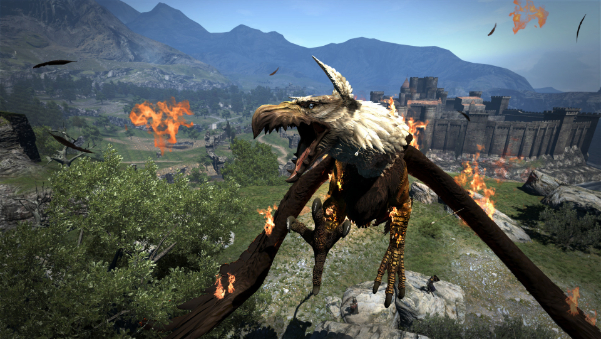

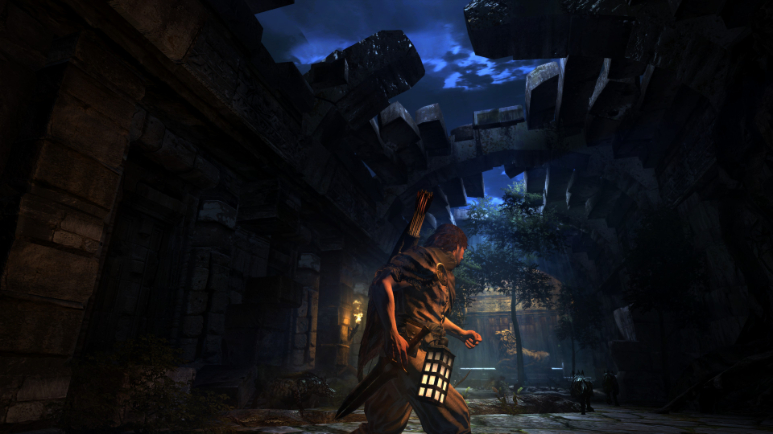
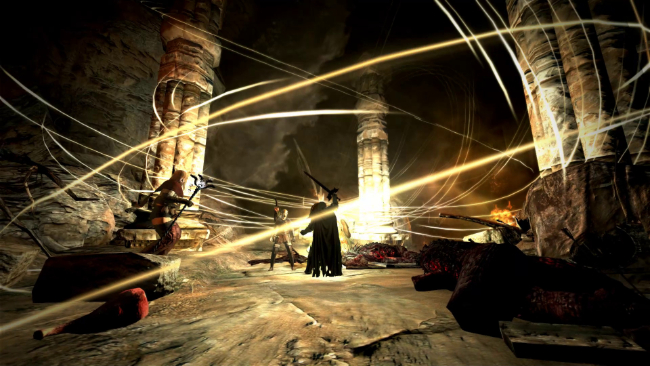
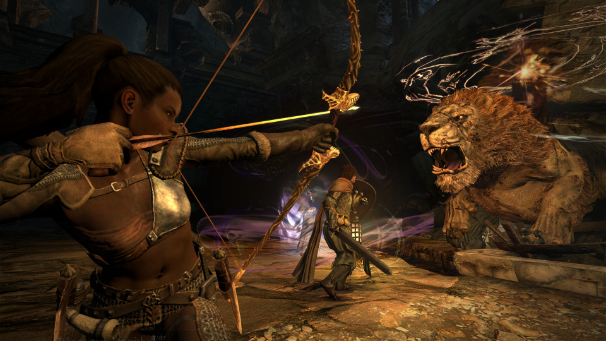
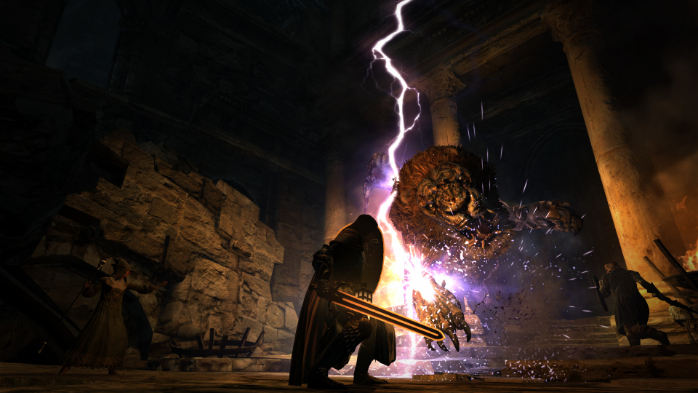
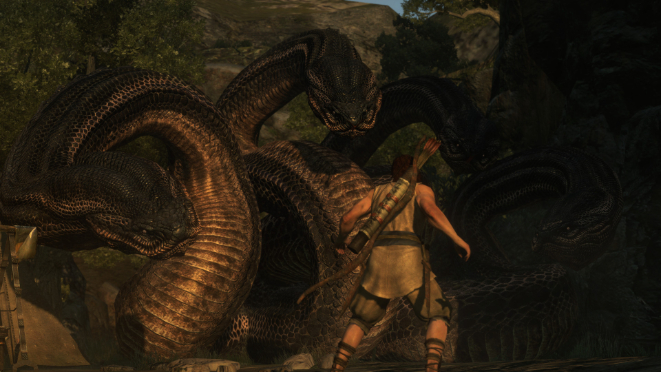







You must be logged in to post a comment.